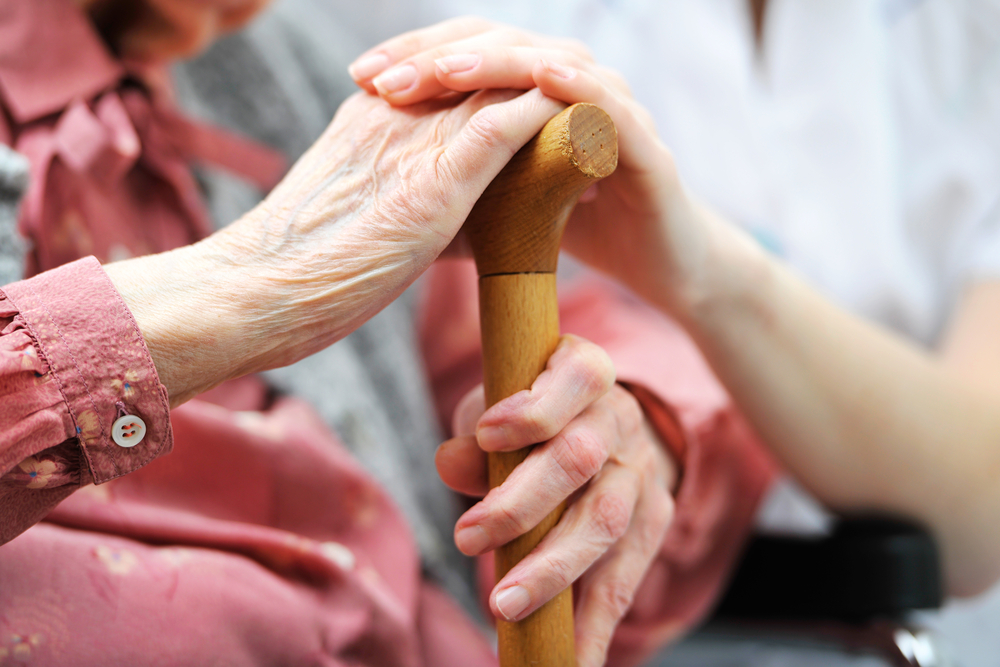B.C. woman fighting for 'essential' access to 94-year-old father
by Rob Munro
It’s traumatic enough to see a loved one’s health deteriorate in long term care during the COVID-19 lockdown.
But a woman, who has gone so far as to write a blog about her experience fighting for better care for her father since 2017, is now so terrified of retaliation that she doesn’t want to be identified in any way.
“It was cathartic for her to write the blog,” her husband told iNFOnews.ca. “But she’s got a real deep fear of reprisal from the facility. We’ve seen it before with others. The fear of reprisal is such a powerful thing – the kind of stress it causes – I can’t explain it.”
READ MORE: Fear of retaliation keeping people from speaking about issues in B.C.'s long-term care homes
They spent four to six hours a day with her father before the COVID-19 lockdown in March when they were shut out completely, other than for video visits.
It wasn’t until May 17, when health authorities changed their policies and allowed one family member to visit, that she found out “essential” visitors had been allowed for some time if they were deemed necessary for the physical or mental well-being of the resident, or to help with translation or disabilities.
She has applied five times to be declared essential and told each time that the facility is looking after him fine so she’s not deemed essential. She’s filed an appeal of those denials, called for an investigation and even sent a letter to Premier John Horgan earlier this month.
“My father is a vulnerable senior with dementia,” she wrote. “He also has a hearing disability, is unable to ask for help or push a call button. He needs to be cued to hydrate, and has digestion problems where food and liquids need to be given to him in small, unrushed amounts. He is unable to walk or even re-position himself in his chair. He is completely reliant on others for his physical needs, comfort and safety.”
During the lockdown, her father has mostly been locked in his room for hours, not being hydrated, his personality has changed, cognitive impairment is increasing and even his oral health isn’t being looked after, she wrote.
She’s been told that she can only get essential visitor status if her father is “actively dying.”
“I find this disturbing; my father is 94 years old,” she wrote in her letter to the Premier. “Is he not 'actively dying' at 94? If not seen as 'actively dying', is he seen as 'actively living' at 94? What about those 'actively living' needing additional physical care and support with disabilities, cognitive health and mental well-being?
“What has happened to the important principle of supporting value-of-life for our 'actively living'? For those of us already concerned about our loved one’s care before COVID-19, this is alarming! It’s time to rethink the way ‘essential’ visits are being implemented and return human rights to all seniors living in long-term care.”
The care home where he lives is one of the “stricter” ones, she said. She is only allowed to visit once every two weeks. Some facilities allow weekly visits but no contact. At least she’s allowed to hug her father.
READ MORE: COVID-19 safe distancing rules are keeping long term care residents 'safe but dwindling'
Her fight is not just to get a more lenient definition of 'essential'. It’s also about recognition of the people who are living in long term care.
“The most difficult part of this journey with my father has been trying to make people see my father as a valued human being - to make people understand that this beautiful, smiling, singing and still sparkling human is loved and is lovable,” she wrote in an email to iNFOnews.ca.
“He's old, yes, but he's deserving of love, care, a voice and respect. He's not an "it" as in "it's my job"; he's not a "case", a "patient" or a "resident", or even "a senior" to treat with indifference. This valued human being is still worthy of my love, care and oversight.”
That being said, on her last visit she’s seen further deterioration.
“The visit with my father yesterday was heartbreaking,” she wrote by email. “I have never seen him like this, nor has his family, his ‘joie de vie’ broken.
There is a rally being organized for 2 p.m. on Sept. 24 at the Parliament buildings in Victoria to try to get the message across that families need to allowed back into care homes before it’s too late for some of their loved ones.
The government has announced that 7,000 workers will be hired in care homes this fall to help keep the people living there safe but it's not clear when, or if, they will ease the restrictions on the number of visitors they can have or better define who qualifies as an essential visitor.
READ MORE: More money, more flu shots and hiring of thousands of workers planned to fight COVID-19 this fall